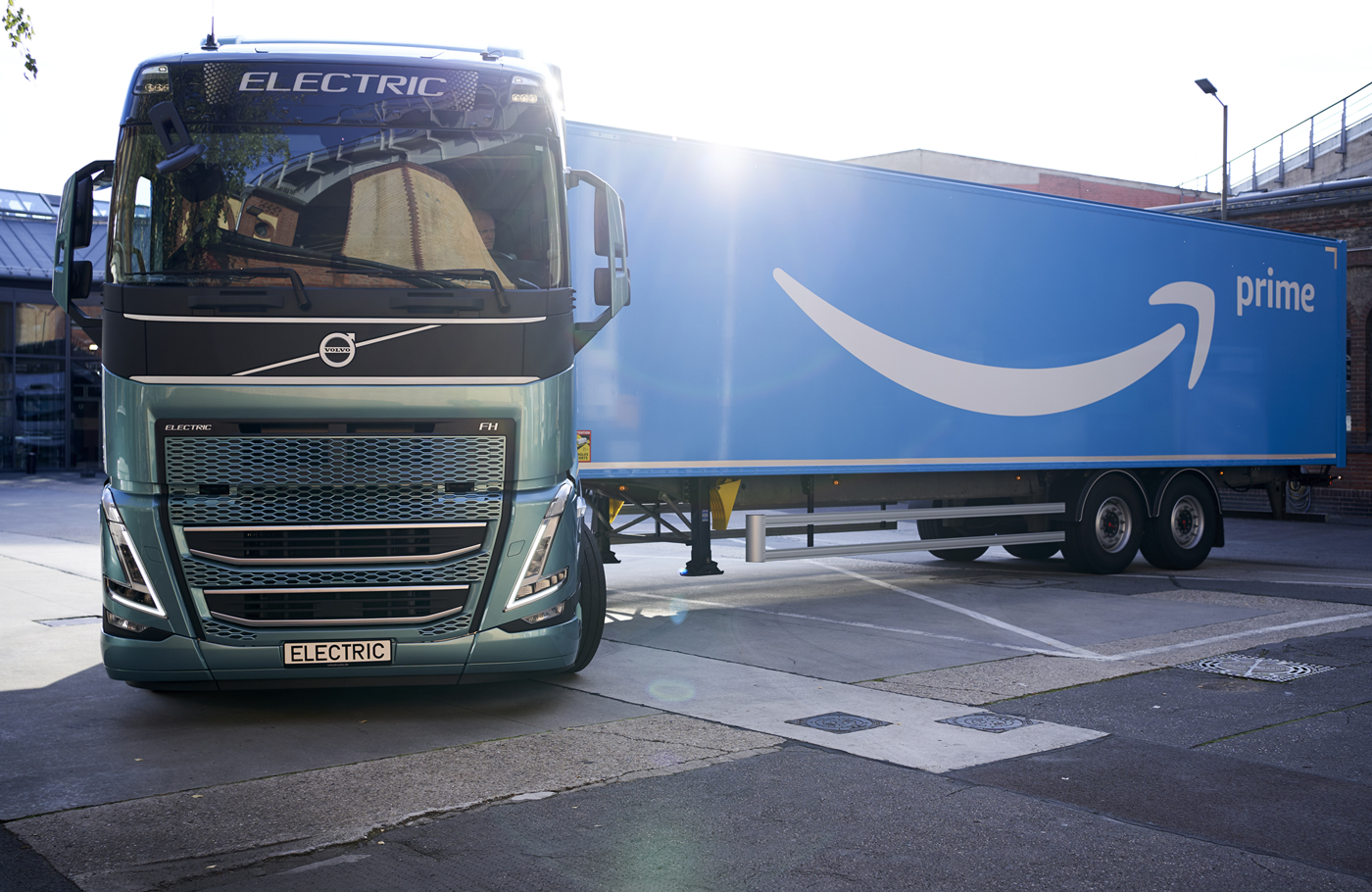Production line ready to roll
Production line ready to roll
As the first global truck manufacturer to do so, Volvo Trucks has started series production of electric extra-heavy commercial vehicles. With these new additions, Volvo Trucks has six electric truck models in series production globally.
Volvo Trucks has begun series production of the electric versions of the company’s most important product range, its extra-heavy commercial vehicles: the Volvo FH, Volvo FM, and Volvo FMX. These electric heavy-duty trucks can operate at a gross combination mass (GCM) of 44 tonnes and represent around two thirds of the company’s sales. They will play a vital role in reaching Volvo Trucks’ global target: 50% of all new trucks sold to be battery or fuel cell electric by 2030.
“This is a milestone and proves that we are leading the transformation of the industry. It’s less than two years since we showcased our heavy electric trucks for the very first time. Now we are ramping up volumes and will deliver these great trucks to customers all over Europe, and later also to customers in Asia, Australia, and Latin America,” says Roger Alm, president of Volvo Trucks.
Production started during September in the Tuve factory in Gothenburg, Sweden, while the factory in Ghent, Belgium, will join the good fight next year. The electric trucks are being built on the same line as Volvo’s conventional trucks, providing production flexibility and efficiency gains. The batteries are supplied by Volvo Trucks’ new battery assembly plant in Ghent.
“Globally, we now have six electric truck models ready to order and in series production to meet the increasing demand for decarbonising goods transports. This is an encouraging step forward for reducing climate change impacts,” says Jessica Sandström, senior vice president of product management at Volvo Trucks.
“We have sold around 1 000 units of our heavy electric trucks and more than 2 600 of our electric trucks in total. We expect volumes to increase significantly in the next few years. By 2030, at least 50% of the trucks we sell globally should be electric,” confirms Alm.
Volvo Trucks’ electric line-up covers a wide range of applications such as city distribution and refuse handling, regional transport, and construction work.
Amazon’s German branch, for example, will receive 20 FH Electric units by year end, which are expected to drive more than one million road kilometres annually. “Big actors in the transport business play a key role in leading the industry’s efforts to lower its carbon footprint. Therefore I’m glad that Amazon is working with us to help reduce their emissions in longer and heavier transport assignments,” says Sandström.
The trucks will replace Amazon’s diesel counterparts and play a key role in electrification initiatives through its transportation chain.

“Amazon is committed to decarbonising its fleet, and the middle mile has been a notoriously hard-to-abate sector,” explains Andreas Marschner, vice president of transportation services for Europe at Amazon. “That’s why welcoming these electric heavy goods vehicles from Volvo into our fleet is such a critical milestone. We’re operating one of the fastest-growing commercial transportation electrification programmes, and we’ll continue to invest and innovate to decarbonise and deliver packages to customers with zero emissions.”
Commercial vehicles make up around 36% of Germany’s domestic transport emissions, according to the German Federal Ministry for the Environment, Nature Conservation, Nuclear Safety, and Consumer Protection. This makes the need to address road transport decarbonisation an important issue.
Closer to home, the picture is looking slightly different for battery electric extra-heavy commercial vehicles, as our editorial director Charleen Clarke wrote in her piece “Will half the trucks on SA’s roads soon be electric?” for Autotrader:
“And what of the future scenario in South Africa? Will we see hundreds of electric trucks on our roads in only eight years’ time? Eric Parry, senior manager for sustainability at Volvo Group Southern Africa, says this is unlikely. ‘It is true that our global target is (that) 50% of trucks sold in 2030 should be using electric but it also includes other non-fossil fuels. South Africa will, of course, contribute to that target, but there will be other markets in the world where the mix will be more in favour of electric vehicles. This would bring the global total to 50%. By that time, we will be selling electric vehicles locally in segments where the configurations, range and charging options make sense for the customer.’”
Parry adds that this will also encompass the possibilities of hydrogen fuel cell powered units that could come later. “The important part of this for us here is the ‘non-fossil fuels’, which includes biofuels such as bio-diesel and BNG (Bio-LNG) – both of which we can already use in the South African market. Even using normal LNG in our dedicated LNG models can give a 20% reduction in CO2 production. So, our local approach is likely to be a practical mix of technologies to contribute to reducing our global impact.”
Clarke summarised things superbly in her article: “So, come 2030, we will indeed see electric vehicles on the roads of South Africa – but they will be complemented by trucks powered by biofuels. And, of course, we will still see lots of good old diesel-powered trucks on our highways – because diesel is far from dead.”
Facts about the Volvo FH Electric
- Battery capacity: 540 kWh
- Output power: 490 kW continuous power
- Range: up to 300 km (or 500 km during a normal workday if a top-up charge is added)
Facts about Volvo’s range of electric trucks
- Volvo Trucks’ global range consists of six all-electric trucks designed to cover many different transport assignments.
- The Volvo FH, FM, and FMX Electric models have a GCM of up to 44 tonnes. Sales are ongoing in Europe, and series production started in September 2022.
- Manufacture of the Volvo FL and FE Electric, for city distribution and refuse handling, began as early as 2019 in Europe.
- Production of the Volvo VNR Electric for North America began in 2020.
Published by
Focus on Transport
focusmagsa




